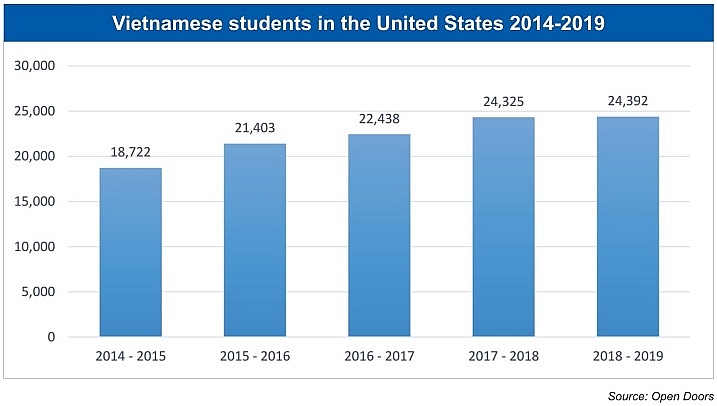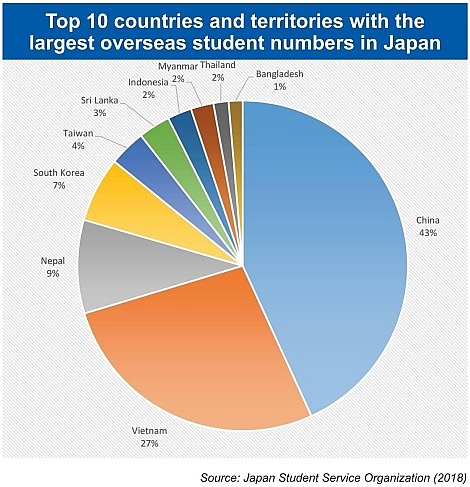Expediting education to reach the world
 |
| Pham Quang Hung, director general of the International Co-operation Department of the Ministry of Education and Training |
Education plays an important role in the international integration process of Vietnam, which takes place across all sectors with massively impressive achievements. The Ministry of Education and Training (MoET) is convinced that education should be part and parcel of all co-operations established in all sectors.
Education helps Vietnam to acquire advances in science and technology as well as modern management skills, while simultaneously contributing to training human resources with the requisite professionalism and management skills to meet local, regional, and global demand.
Adopting world standards
Via implementing Resolution No.29-NQ/TW on fundamental and comprehensive innovation in education, serving industrialisation, and modernisation in a socialist-oriented market economy during international integration, Vietnam has oriented education towards the quality standards of developed countries.
Being aware of the importance of integrating the country’s education system with the wider world, both state agencies and private enterprises are proactively pursuing initiatives to bring foreign curricula to Vietnam and raise the standards of the national curricula. The government issued the planning to develop human resources, highlighting the development of the education system as the most important task to match the demand in the new era.
The MoET has been actively contributing proposals to build Vietnam’s education development strategy. In July 2019, the government issued revisions amending and supplementing a number of articles of the Law on Higher Education, which called attention to the importance of investing to improve education quality to meet international standards, and simultaneously improving private sector participation in the sector.
Besides that, the revised Law on Higher Education will give greater autonomy to universities. In addition, Decree No.86/2018/ND-CP on foreign co-operation and investment in education created a legal basis to improve both local and international investment in education.
Both public and private education facilities have been improving their international co-operation programmes, including implementing programmes on integrated education, joint training, and exchanging students and teachers.
Besides that, they are also striving to increase the number of international students. At present, 21,000 international students have participated in full courses and exchange programmes at universities in Vietnam.
It is easy to see that Vietnam has been paying a lot of attention to improving education quality as well as international co-operation programmes so that it can become a prestigious destination for international students.
 |
 |
Encouraging inflow
Recently, private investment in education has been on the rise, with numerous local and foreign names. This has helped Vietnam improve the quality of its human resources and to exploit the full potential of its golden population structure, reinforcing its appeal as a lucrative education investment destination. In the past two years, not only did direct private investment but mergers and acquisitions (M&A) deals also broke records in the sector, bringing new domestic and foreign brands to the country.
In line with aggregate data from the Ministry of Planning and Investment, as of December 31, the country received a total of 525 valid FDI projects in education and training (including vocational education), out of a total of 30,827 projects in 19 economic sectors.
Compared to 2018, the number of education projects has increased by 170. In terms of value, the total registered capital of these 525 projects was approximately $4,376 million, about 1.2 per cent of the total $362.58 billion registered in the entire economy.
Preschool education saw a large investment with 40 projects, closely followed by 39 inter-level general education projects and six projects focusing on higher leaning. The rest is invested in short-term training and vocational education institutions.
Data from Resolution No.35/NQ-CP dated June 2019 on increasing the mobilisation of social resources for investment in education and training in the 2019-2025 period shows that all localities in Vietnam own non-public training and education institutes with a total of 2,955 establishments (accounting for 6.68 per cent of the total 44,228 educational and training establishments nationwide), with 1.35 million students (6 per cent of the 22.5 million students) – which helps create nearly 100,000 jobs for teachers and workers.
Additionally, there are currently 65 non-public higher education institutions, providing teaching services to some 244,000 students, making up 13.8 per cent of the total students nationwide.
Currently, nearly 10,000 students are studying from five foreign higher education institutions operating in Vietnam.
In addition, Vietnamese universities and colleges also run more than 500 co-operation and joint-training programmes with over 200 institutes abroad.
Despite these achievements, investment in education remains modest, which makes Vietnam a land full of potential. In order to better mobilise investment in education from both domestic and foreign investors, the MoET and relevant agencies will continue to implement the solutions set out in Resolution 35, with the four priorities of institutional improvement, enhancing the investment environment, promoting autonomy at public education institutions, and strengthening conditions for quality assurance and education quality accreditation.
What the stars mean:
★ Poor ★ ★ Promising ★★★ Good ★★★★ Very good ★★★★★ Exceptional
Related Contents
Latest News
More News
- Congratulations from VFF Central Committee's int’l partners to 14th National Party Congress (January 25, 2026 | 09:46)
- List of newly-elected members of 14th Political Bureau announced (January 23, 2026 | 16:27)
- 14th Party Central Committee unanimously elects To Lam as General Secretary (January 23, 2026 | 16:22)
- List of members of 14th Party Central Committee announced (January 23, 2026 | 09:12)
- Highlights of fourth working day of 14th National Party Congress (January 23, 2026 | 09:06)
- Press provides timely, accurate coverage of 14th National Party Congress (January 22, 2026 | 09:49)
- Press release on second working day of 14th National Party Congress (January 22, 2026 | 09:19)
- Minister sets out key directions to promote intrinsic strength of Vietnamese culture (January 22, 2026 | 09:16)
- 14th National Party Congress: Renewed momentum for OVs to contribute to homeland (January 21, 2026 | 09:49)
- Party Congress building momentum for a new era of national growth (January 20, 2026 | 15:00)

 Tag:
Tag:




















 Mobile Version
Mobile Version